If you don’t go a bit insane while making your magnum opus, is your heart really in it?
“I am thinking of shooting myself!” Francis Coppola bellows to his wife, Eleanor Coppola, during the notoriously torturous production of his 1979 movie Apocalypse Now. The guy had a lot on, to be fair: the Philippine Army kept nicking his helicopters to quash communist rebels. Adverse weather flattened a bunch of sets, shutting down production for two months so they could be rebuilt. His lead star had a heart attack. And the guy playing his antagonist rocked up late and apathetic after demanding a million-dollar advance, having not bothered to read Joseph Conrad's Heart of Darkness, the 1899 novella the movie was based on.
Together with their three children and an oversized Hollywood entourage in tow, the Coppolas spent 238 horrible days in the jungle on the Philippine island of Luzon to make Apocalypse Now. With her camera, Eleanor documented her husband’s yo-yo-ing towards insanity and the protracted clusterfuck of the shoot, recording private conversations so she could reference them in her journal. These video and audio excerpts form part of a meta making-of documentary titled Hearts of Darkness – note the additional ‘s’ – released in 1991.
“It’s a guy lost on a mission and desperately trying to find what he’s trying to say and desperately in trouble through his actions,” Ian Shelton tells me of the documentary. While his band Militarie Gun were making their second full-length album, God Save the Gun, Shelton connected with Hearts of Darkness. It became one of his primary inspirations: “That all felt very relevant,” he says.
Shelton, like Coppola, got lost on a mission while writing God Save the Gun, falling desperately into quagmires of his own design. It’s just that his jungle was a thousand sweaty punk clubs and his camera a microphone.
Get the Best Fit take on the week in music direct to your inbox every Friday
After a life of sobriety – something strongly rooted in the hardcore scene – Shelton started drinking, then promptly re-sobered right as the band went into the studio. “With the drinking and drugs and everything else, it was [about] really trying to embrace it and feeling like I was understanding it in a new way,” Shelton, now 33, shares. Having observed alcoholism in his loved ones from a wary distance, he felt compelled to get closer in order to untangle its destructive mystery. It parallels Coppola immersing himself in this hot-as-hell jungle that’s essentially just as unpredictable and threat-filled as the one his subjects fought in – it’s why they couldn’t and wouldn’t have shot Apocalypse Now from the comfort of a Hollywood sound stage.
“But I was understanding it the wrong way, and I was just slipping up,” Shelton continues, nodding to the opening line of “B A D I D E A”, the album’s propulsive lead single. “I just don’t have moderation in my blood.”
Shelton had two slippy-uppy moments in particular during the production of God Save the Gun, final binges that left behind hangovers, dejection, and a resolve to change. The carnal scream that opens “Maybe I’ll Burn My Life Down” is evidence of a drunken studio session that made the final cut, like addiction’s last outraged plea for control. Shelton didn’t want to sing about this stuff with his tongue locked to his cheek. “I felt like we would make something ironic if I hadn’t made a change in my own life,” he says. “If this is the way that I’m showing up to the studio” – drunk – “then it’s not going to be the record it needs to be.”
Besides the addiction push-and-pull, Shelton also fights – literally fights – the lingering influence of a disorderly childhood. “Kick”, a rage-quit-your-job kind of anthem that opens with the band’s iconic “Ooh! Ooh!” war cry, finds Shelton sharing anecdotes of mom’s boyfriend’s wife (uh oh) fighting on the lawn and the cops getting called out. It orbits a fiercely honest, absurdly fun singalong: “If I kicked you in the face, I’m sorry, but I would do it again.” This isn’t bluster. It’s shame mixed together with catharsis, the paradoxical cocktail that follows when you both own up to mistakes and own them, conceding that you’ll probably slip up again.
“If I’m being honest, in a way that I probably shouldn’t admit in the press, I have a habit of getting in fights, and I have kicked people in the face multiple times,” Shelton says, confirming that the chorus hook isn’t, in fact, about the consequences of stage diving. “That song is so much looking at the past and kind of laying out the milieu of a messed-up childhood and using it as a justification for bad behaviour.”

Shelton has spoken elsewhere about his disdain for how people, particularly men, shirk ownership of their flaws, and how harmful that is for the world – harmful in a political context, but for interpersonal relationships and functional families, too. “I think it’s really gross and evil, the way that people are pretending to be perfect, and I think that’s where the truly dark, gross stuff lives,” he shares. “My first thing is to admit that I’m wrong, and I think it feels really good to admit that you’re wrong. It feels really good to apologise. My approach is much more like, ‘Let me stand in front of this bus and see if it’ll stop in time.’”
Suicidal ideation spreads through the album as well, cresting with an uncomfortable audio clip of artist David Choe chiding the recently deceased Anthony Bourdain for being a “fucking asshole” because he murdered someone – someone who happened to be Anthony Bourdain. Shelton’s lyrics in “I Won’t Murder Your Friend” aren’t far off this sentiment, even echoing Coppola’s “I am thinking of shooting myself!” declaration from before. “My god, some days I wanna let go / Throw myself out of a window / Swear to god I’m gonna murder your friend,” Shelton sneers as guitars chromatically slump down the neck, fatigued and charcoal-eyed.
Together with his four dependable bandmates – guitarists William Acuña and Kevin Kiley, bassist Waylon Trim, and drummer David Stalsworth – Shelton explores all of this adversity (and more) across the album he’s been working towards for essentially his entire life. “So much of this record, I thought that I was writing to a characterised version of myself, but it was actually just who I was becoming,” he says, inadvertently poking the principal theme at the heart of Hearts of Darkness.
The doc explores the blurring of lines between character and actor, subject and artist. Martin Sheen, the lead star, experiences this blurring after he asks Coppola who his character is. “He’s you,” Coppola insists. “Whoever you are, whatever we’re filming at the time, you are that character.” If that sounds like high stakes, it was – Sheen was the one who had a heart attack during production.
The film itself gets blurred, with Coppola leaning into the idea that Apocalypse Now wasn’t ‘about’ Vietnam – “it is Vietnam,” he told reporters at the 1979 Cannes Film Festival. Hearts of Darkness thus ends up warping the hero’s journey conceit, the hero being Francis Coppola, a visionary who can’t quite access his vision (until he does) – a man battling insurmountable odds that, crucially, are of his own making.
“That was a startling realisation,” Shelton says of becoming the character of ‘Ian Shelton’, of living the hero’s journey while writing the hero’s journey. “When we were about to go into the studio and record, I was looking at the song ‘God Save the Gun’, and I was looking at all of the songs that we were preparing, and I was like, ‘Feels like I’m hoping to send a message to someone, and it seems as though likely that message is to myself,’” he tells me. He distils it in a way Coppola would surely endorse: “For this to be honest, I have to live it.”
Where God Save the Gun’s line-blurring differs from Hearts of Darkness’ – besides the obvious – is that Ian Shelton is both Coppolas: Francis and Eleanor. He’s the frustrated, freewheeling genius who can’t wrangle this cursed, incorrigible life project (until he does). He’s also Eleanor, the dutiful lens that watches and follows with concern, even love – someone who has his back but can also detach, can write in their own diary at the end of the day. In other words, Shelton is able to view his own plight not quite objectively but at least less subjectively than Francis Coppola viewed his.
Confirming as much, Shelton addresses himself directly during the final lines of the album, a bathroom-mirror moment for which he opted not to use his real name because it would have been “a little too self-serious.” Still, over nothing but a fuzzy rumble of bass guitar, he huffs out this perfect couplet: “Times up, Liam, by now you gotta know / If you wanna keep your life, you gotta let it go.”

Each verse of that song pep-talks a different person in turn: Susie, then Martin, Lucy, and finally Liam/Ian Shelton. “It was so important to me that the record had an ending, and that it was uplifting,” he says of “God Save the Gun”. And while there are plenty of uplifting, impellent cuts on the album – “Fill Me with Paint”, “B A D I D E A”, “Kick” – the title track stands alone in its ability to transmit a sense of unbreakable, unflinching hope.
This pay-off – the album’s final act – had to counter Shelton’s primary qualm with modern art: that it doesn’t have endings. Adopting a more utopian view of the creative mission, he tells me, “People are making things that are maybe reflective of society… but I think the best version of art should embody what society could be, and that is about letting people know that there’s a better way, that there’s a way through, that there is light at the end of the tunnel. This record very much exists in a tunnel, and that light was super important to me.”
“God Save the Gun” is Shelton slopping out of the shit pipe into rain-puddle euphoria, à la Andy Dufresne during the climax of The Shawshank Redemption, having spent every modicum of his willpower, time, and emotional energy across the thirteen tracks that terminate here. He’s not clean, and has a hell of a run still ahead, but it’s a temporary triumph to enjoy all the same – especially as he’s pulling us out of the tunnel with him. Matching the sense of resolution and hard-won peace is this choppy, hypnotic beat that feels new for Militarie Gun – it commands you to move, but dance rather than mosh. Paired with choppy, helicopter-blade guitars that introduce Madchester to Krautrock, it sounds like resolve, like resolution, like an ending.
“I have no ending!” Coppola laments numerous times throughout Hearts of Darkness. The script haunted the director. His screenwriter, John Milius, ostensibly choked on the satisfying moral conclusion part. Coppola, also the co-writer, agonises over the missing piece, chastising himself for being unable to write his way out. “He can’t go back down the river because the journey has changed him,” Eleanor shrugs sagely of the whole predicament. And so the only way forward is, well, forward. It’s the same for Shelton – with sobriety, with synthesising the painful, awkward parts of himself, with pressing through his most intense songwriting expedition so far.
As for these movie parallels, they aren’t just convenient and superficial. “I moved to Los Angeles to quit music,” Shelton says bluntly. “I moved here to pursue filmmaking. I really do want to make movies, and it was kind of by accident that Militarie Gun happened.” When the pandemic halted video shoots, Shelton started to frequent a practice space each day, something to focus his mind, “and that became Militarie Gun,” he continues. “I’m just very obsessive, so I was like, ‘This is my new thing. This is now my entire life.’”
From there, he recruited musicians he knew through the hardcore scene, such as William Acuña, the only guy who’s been with the Militarie Gun project since its inception. Before moving to LA, Shelton booked DIY shows in Seattle and drummed and co-sang with his brother Max in Regional Justice Center, a tougher, powerviolence-leaning band named after the prison Max spent time in. But Militarie Gun would lean pop: Shelton would allow the to-the-point hooks of his favourite band, Guided By Voices, to imbue the work. There’d be the fist-in-the-air radio-punk of Green Day and friends. You’d also hear some Oasis, the baggy, lightly psychedelic sounds of the Gallaghers’ hometown, plus queues from hip hop, ambient, and film score’s callbacks and conceptual arcs.

Militarie Gun released their rough-and-ready debut, All Roads Lead to the Gun, in the summer of 2021. With lurid orange flames engulfing a Winnebago on the cover, meat-cleaver guitars, and barked mantras, the mini LP was vaguely reminiscent of early Rage Against the Machine, adjusting that record’s formula for the post-truth, person-centred era – and swapping a burning monk for a burning symbol of the middle class (perhaps). Upping the ante and accessibility in 2023 was Life Under the Gun, led by the perpetually replayable “Do It Faster”, a song capable of converting people who can’t name a single hardcore band (besides Turnstile). Post Malone was so enamoured of the track that he asked Militarie to write his walk-on song for the WWE 2K24 video game, resulting in “Gun Under The Gun”.
It was clear from these records – their matching title track finales, their conceptual streaks, their excellent, mini-movie music videos – that Shelton’s new album would draw from his directing background and cinephilia. You can read the sonic connections between songs in this context, too. One such motif was popularised by “Do It Faster” but also appears on “Ain’t No Flowers” as well as MSPaint collab “Can’t Get None”, “Very High”, the Dazy banger “Pressure Cooker”, and several songs from the new record. It has become downright iconic, inextricably linked with the band. More than a motif, it’s a calling card. It goes “Ooh! Ooh!”
If Shelton is sick of being asked about the double ooh – an exhilarating purge of pent-up whatever-it-is – he doesn’t let on, graciously citing similar vocal motifs that preceded it. It’s not just metal and hardcore, he explains, pointing to a Beatles song where Paul goes “Oof!” – “I’ve Got A Feeling” from Let It Be. (Like “Do It Faster”, it comes just before the second verse.)
“I was listening to Van Halen, and he goes, ‘Ooh!’; Culture Abuse did it – they have this song on their EP Spray Paint the Dog, where it starts with a four count of him going ‘Ooh, ooh, ooh, ooh,’” Shelton recalls. “I just view it as a traditional element of the genre. I don’t view it as our thing so much. I think it could be anyone’s thing.”
I posit that, along similar lines, Green Day had their amphetamine-fuelled “soom,” spat out by Billie Joe Armstrong before every instrumental break around the Dookie era, and which regular Militarie collaborator Dazy borrowed for “Invisible Thing” and “I Know Nothing At All” (as have a litter of punk-adjacent bands). “That’s a Green Day thing,” Shelton agrees. “I think you just kind of pick one. We also have an ‘Aye!’ I use on a handful of songs” (see “Big Dissapointment”).
In terms of the double ooh as a calling card, though, Shelton prefers “announcement.” “I just love the idea of announcing yourself,” he says. “So much of what we want to do is have a big personality. The fact that we have an element that people know – if I appear on someone else’s song and you hear those two sounds, you’re like, ‘Oh, fuck, a Militarie verse is about to start.’ It’s just meant to be an announcement, like putting a flag in the ground.”
While Shelton’s roots are in Pacific Northwest hardcore, Militarie aren’t locked to those genre touchpoints and have increasingly strayed towards their britpop, indie rock, and hip hop influences. Shelton references recurring vocal announcements in the the latter world – “the announcement ad lib, like Rick Ross is about to come on so you hear ‘Maybach Music,’” he says – and cites Kanye West’s Life of Pablo as an inspiration for the new record, the way it’s threaded together with interstitials and interludes.
“I can remember getting voice notes from him before we really knew each other,” says the co-producer of God Save the Gun. Canada-born, London-based Riley MacIntyre is known for his work with Rina Sawayama, The Horrors, Arlo Parks, and LCD Soundsystem – and hadn’t cut a punk record before God Save the Gun. He recalls that Shelton referenced Life of Pablo in these voice notes – how it was “a fragmented album, and this album obviously didn’t end up being so fragmented, but the intrusive thoughts thing was a really cool idea,” he says.
“It’s something that I really struggle with,” Shelton confirms: “repetitive, interruptive thoughts.”

“Ooh! Ooh!” is itself a kind of manifested intrusive thought, a commanding, high-energy interruption that acts as a pressure release. But the band and MacIntyre experimented with different applications of the intrusive thoughts concept on God Save the Gun: the intoxicated screams at the start of “Maybe I’ll Burn My Life Down” and in the middle of “Throw Me Away” (recorded in the same session). The Anthony Bourdain audio clip. Two short raps from Shelton’s brother Max, interpolated at the end of songs, like end-credits scenes. “James from Dazy told me, ‘We’re one interlude away from this being a rock opera,’ and I think that’s true,” Shelton recalls.
“Isaac’s Song” is less than a minute of pillowy fog that features vocals from Isaac Brock of Modest Mouse. Floaty and absent any beat, the interlude reminds me of those fleeting seconds where you forget to think, losing yourself out the train window – perhaps the opposite of an intrusive thought. Meanwhile, “God Owes Me Money” is peak intrusive thought. Halfway through the song, there’s a “weird, awkward chop,” MacIntyre calls it. We hear a woman say “oh God owes me a check,” her voice sounding like it’s coming through a tinny iPhone speaker (because it is). Another woman laughs, then we’re into verse two.
That first voice is Missy Dabice from Mannequin Pussy, who was asked to send over something akin to “Bitch Better Have My Money”, Shelton explains. That’s a representation of the intrusive thoughts idea, he says. Later, the coda of that same song is one of Max’s raps, called “I’ll Admit”. It’s a feet-up-on-the-coffee-table loop in which the other Shelton bluntly admits that he’s “addicted to getting lit.”
“It tied together everything that I’m trying to say with the album as a whole,” Ian Shelton notes. “It says it in such a more flippant, casual way… we wanted a moment of levity that still says what the song is trying to say.” Again, like “Kick”, it’s not about hubris, it’s about owning it and maybe getting some bonus blowback catharsis.
Then there’s “Pt. II”, the album opener. Only a few seconds long, it’s a voice memo of Shelton sighing that things have not been great lately. “Honestly, I’ve been…” he starts to say before being cut off by the next song – the album opener proper. “B! A! D!” it yells, a call-to-arms confession.
“You’re meeting a character at their low point at the start of a movie,” Shelton explains of this cold open. “Instead of starting high, going low, coming back, the low is at the very beginning, and that was a very important thing, and that’s why the record starts the way it does. We want you to know that that’s the place that the record is starting from. If it had just started at ‘B A D I D E A’, you wouldn’t understand. I’m saying ‘I’ve been slipping up’, but it’s the cause, just setting the scene, and setting the scene was really important.”
“B A D I D E A”, for its part, is like the pat-a-cake punk of Olivia Rodrigo smashed into Turnstile in major-key mode, and something of a sequel – without any of the negative connotations that word carries – to “Do It Faster”. It has a similar whirlwind brevity, house-shaking guitar and bass, and a giddy, chanted chorus that remains just as fun after, let’s face it, more than 100 listens. (It even has the beloved double ooh.)
At the top of an album that proceeds to branch out more than Militarie ever has before, “B A D I D E A” is a perfect welcome back, a locker room all-hands-in before you file out into the unknown. Already, Shelton says, “It seems like it’s as big as ‘Do It Faster’, and I think a lot of people probably assumed that we couldn’t top ‘Do It Faster’. To have this kind of instant recognition of this song feels really good.”
Instant is an apt word for “B A D I D E A”. It was the song that enabled the smooth gelling of band and producer on day one of God Save the Gun’s recording. “It was the first thing we recorded, and the thing we probably worked on the least,” MacIntyre tells me. “I had in the back of my mind that if I got everything going in time” – setting up in a new studio with new people in a city he’d never been to (LA) – “then we could record one song. Ian and I picked one that would be fun, one they could play really confidently.”
“B A D I D E A” was the natural choice, “because it’s raucous,” he continues, plus it doesn’t hurt that it’s under two minutes long. “We wanted something that would get the energy going: We’re starting an album now. Let’s get excited. Let’s get to know each other. It really worked. It maybe got lightly tamed through the mix process, but it was wild – that first pass at it – and we didn’t really touch it after that. That’s what kicked the whole thing off, and I think – you’d have to ask them – it kind of gained their trust.”
With that, MacIntyre, Shelton, and the rest of the band established a terra firma from which they could safely stray. “You can rattle the cage and know there’ll be strong resistance to anything that doesn’t make sense,” MacIntyre explains of Shelton’s unwavering masterplan for the record, “so you don’t have to be careful about what ideas you’re putting forward.”

With a less self-assured or less determined artist, such an approach might push the whole thing too far off course, untether it from where it was meant to settle down. But with Shelton, MacIntyre continues, “it was immediately clear that he’s just going to veto anything that doesn’t fit the vision. That gives me the freedom to go mental and suggest whatever, even if I’m not tied to it as an idea.”
The producer talked Shelton around to some of those blue-sky ideas, like the doom metal outro to “I Won’t Murder Your Friend”, though he’s reluctant to take credit for anything, instead suggesting that he merely gave the production process a “workflow.”
Unlike Coppola and Milius, Shelton and MacIntyre landed on the same page from day one: “he didn’t want it to just sound like a ’90s band-in-a-room thing, like a Weezer record or whatever,” MacIntyre tells me. “As great as those records sound, I kept saying, ‘I want kids playing this off their phone in the street,’ the way they do with trap music. I didn’t spend any time worrying if it sounded good coming off an iPhone. But you know what I mean – more like the energy of it. I wanted it to feel like it was exploding.”
They succeeded. “Fill Me With Paint”, for instance, has one of the biggest, dopamine-release choruses the band has ever delivered – scaffolded with layers of bright synth and distortion. “Maybe I’ll Burn My Life Down” is so in the red that you’re concerned for whatever speakers you’re listening through. The way MacIntyre talks about “God Owes Me Money”, it seemingly best exemplifies the band’s straying from home to embrace different techniques. Besides the aforementioned interstitials – and a vibraphone – MacIntyre says the song was so grandiose, so massive, that they actually had to pull it back and make it rawer, so it was more like Militarie Gun. “There was a type of song I wanted to write, but I couldn’t figure it out,” Shelton says of the track.
And yet at the same time – with contributions from MSPaint’s Nick Panella, Mannequin Pussy’s Missy Dabice, and Max Shelton – “God Owes Me Money” is a Militarie Gun extended family gathering. These were the people who helped Shelton realise the song he had in his mind, a process that very much adheres to the Militarie MO – pulling in friends they’ve already worked with, toured with, and quite literally grown up with.
Shelton’s favourite Militarie Gun songs tend to be the unloved underdogs on which they tried outside-the-box stuff like this. He’s enthusiastic about their 2022 cover of John Lennon’s political ballad “Gimme Some Truth”, for example, where Shelton’s voice is gravelly, decisive, but closer to a sing than a shout, the guitars twinkly and clean. He also points to “I Can’t Stand Busy People”, a warm, stripped-back collab with Woolworm included on the deluxe version of All Roads, comparing it to a magic trick.
Indeed, Militarie Gun’s defining songs were defined not by the studio but by the road. They’ve never played “I Can’t Stand Busy People” or “Gimme Some Truth” live, but what Shelton dubs their “microsongs” – “Do It Faster” and “B A D I D E A” – are typically played more than once within the same show. This tactic started during the last album cycle. “We just realised [the crowd] went crazier every next time we played it,” he explains of “Do It Faster”. “People buy into the stupidity.”
The purpose of the microsongs is, obviously, totally different to the studio experiments; they aren’t about the band proving themselves in a format that’s going to be preserved in wax and megabytes. Instead: “It’s that loosening of inhibition,” Shelton says. “You’ll be watching [one of these songs] one time and have a little bit of regret about not jumping off the stage or something. The next time we do it, you’re like, ‘Well, if I regretted it the last time, maybe I should do it.’ If you didn’t do it that time, the third time you’re like, ‘Well, they’re really giving me a chance here.’ That’s the idea: to really loosen up the room and make people feel comfortable to act out whatever it is they want to do.”
I witnessed as much at a Militarie Gun show on a rainy September weekday in South London under Bermondsey’s railway arches, during the height of St George’s Flag fever. “I don’t know if America is gonna exist much longer; maybe you can take it back,” Shelton smirked to a 100-capacity room while Acuña and Kiley approximated the riff to “Sweet Home Alabama”. “Speaking of America, this song’s about bad ideas,” went the punch line. Led by Waylon Trim’s seething, live-wire bass, the song that followed got the biggest reaction of the night – and it got an even bigger one when they reprised “B A D I D E A” to close the set, giving reticent attendees a second chance to throw themselves in, catching stage divers, bouncing against bodies, and Ooh! Ooh!-ing as a temporary mind-shield against racist idiots at home and abroad.
“I think back to when I was a kid and went to hardcore shows, seeing Ceremony or whatever else, it would be like, ‘I wish I did something,’” Shelton recalls. “Then finally you break that seal, you’re so much more comfortable, and you feel so good at the end of the night because you were able to express something. I’m not saying it was some profound moment for you” – it was – “but for me, being a kid, it was a profound moment to break the seal and feel okay being crazy and jumping off things, acting out how I felt inside.”
He continues, expanding on the altruistic motivations behind their performance: “So much of what we want to do with our live show is make people feel seen and comfortable in their own skin. I try to move around like a goofball; I want to be actively goofy on stage to let people know they can move their bodies.”
But to call it a temporary release (for all involved) wouldn’t do it justice – it’s a feeling, an armour, that we take away in the hours, days, and weeks after a show. It’s about self-belief. When I ask, towards the end of the interview, for Shelton’s favourite thing about himself, he searches a long while before relenting: “I spend so much time beating myself up and living in regret and not allowing myself positive thoughts about myself,” he says. “So much of what I think about is: if you think that you’ve arrived, then you won’t be there long.” And so his favourite thing about himself is his inability to stop, his inability to sit in an ending.

Sure, God Save the Gun has that one, epic, carved-in-stone arrival – the movie-script ending. That closing song is Francis Coppola getting out of a limo with his family, well-groomed and de-jungled, and walking the red carpet to the premiere of the movie that he finished after all.
But life keeps rolling after Eleanor Coppola stops privately filming her husband’s rants, after Coppola moves onto his next movie, after Hearts of Darkness leaves us on the red carpet with flashing cameras on some ephemeral August evening.
Where does that leave Ian Shelton?
“I’ve wanted that feeling of normality for so long,” he says. “I’ve wanted to slow my brain down. I’ve wanted to be able to sit in a moment. Drinking helped me achieve it – but at the end of the day, it was an unhealthy means of achieving it.”
When I pry into what else has the power to slow his brain down, he concedes, “I feel that [way] coming off stage – specifically Riot Fest, the London shows, the New York shows – it was definitely a feeling of peace afterwards, where there weren’t the same racing thoughts. Getting to meet people. The excitement of the communal element of the band. We release these songs, and they don’t just mean something to us, they mean something to other people – that means so much.”
The catch is, the bubble is short-lived. “It’s maybe an hour of peace,” he says, “but that release definitely is a very big part of my life, and what I feel like I need to exist.” That’s why we have movies, albums, live shows – a lifetime of bad ideas; an hour of getting to exist with the really fucking good ones.

 1 month ago
26
1 month ago
26
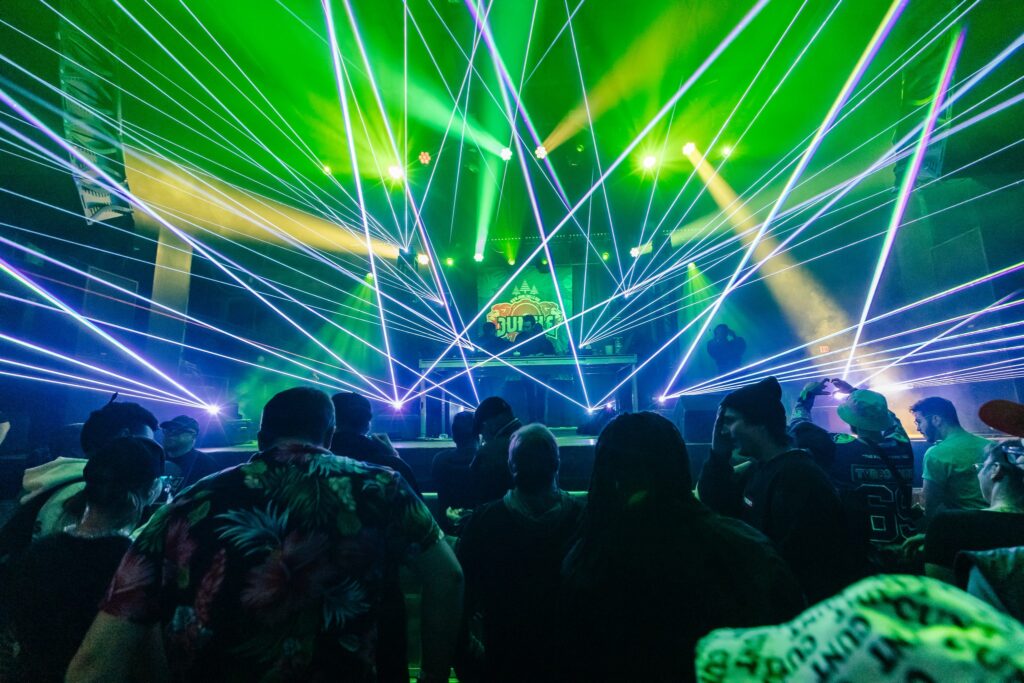

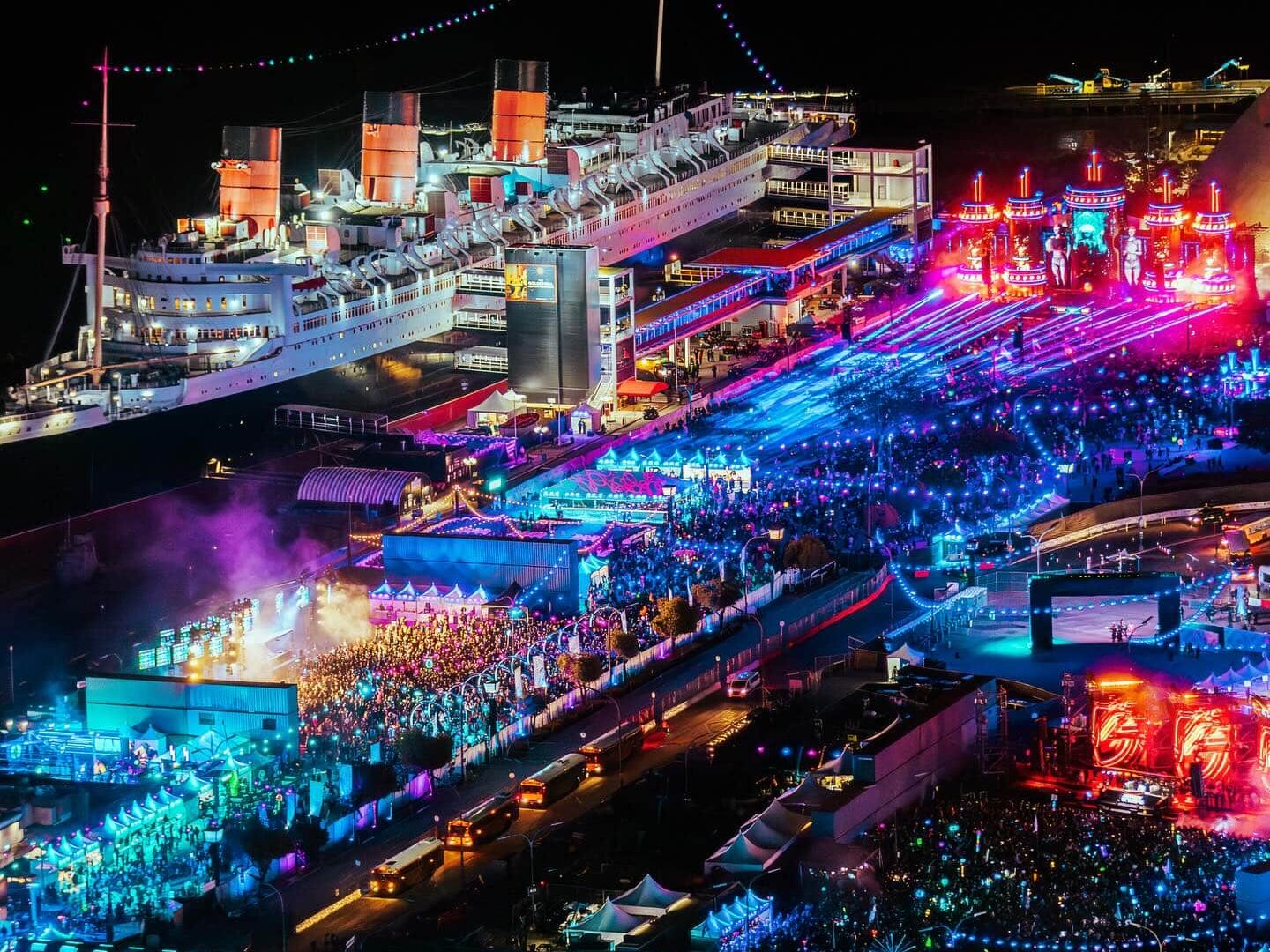

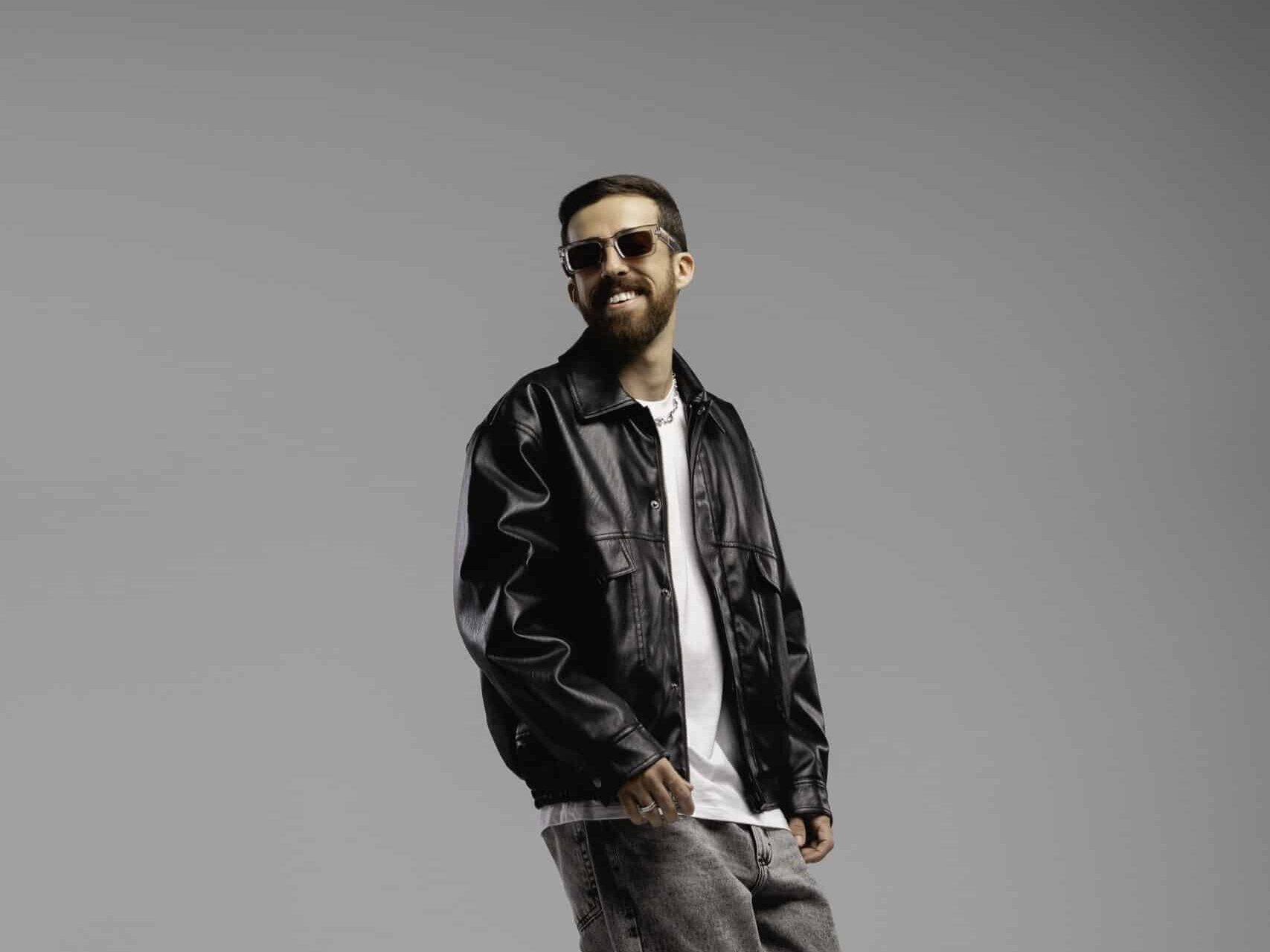


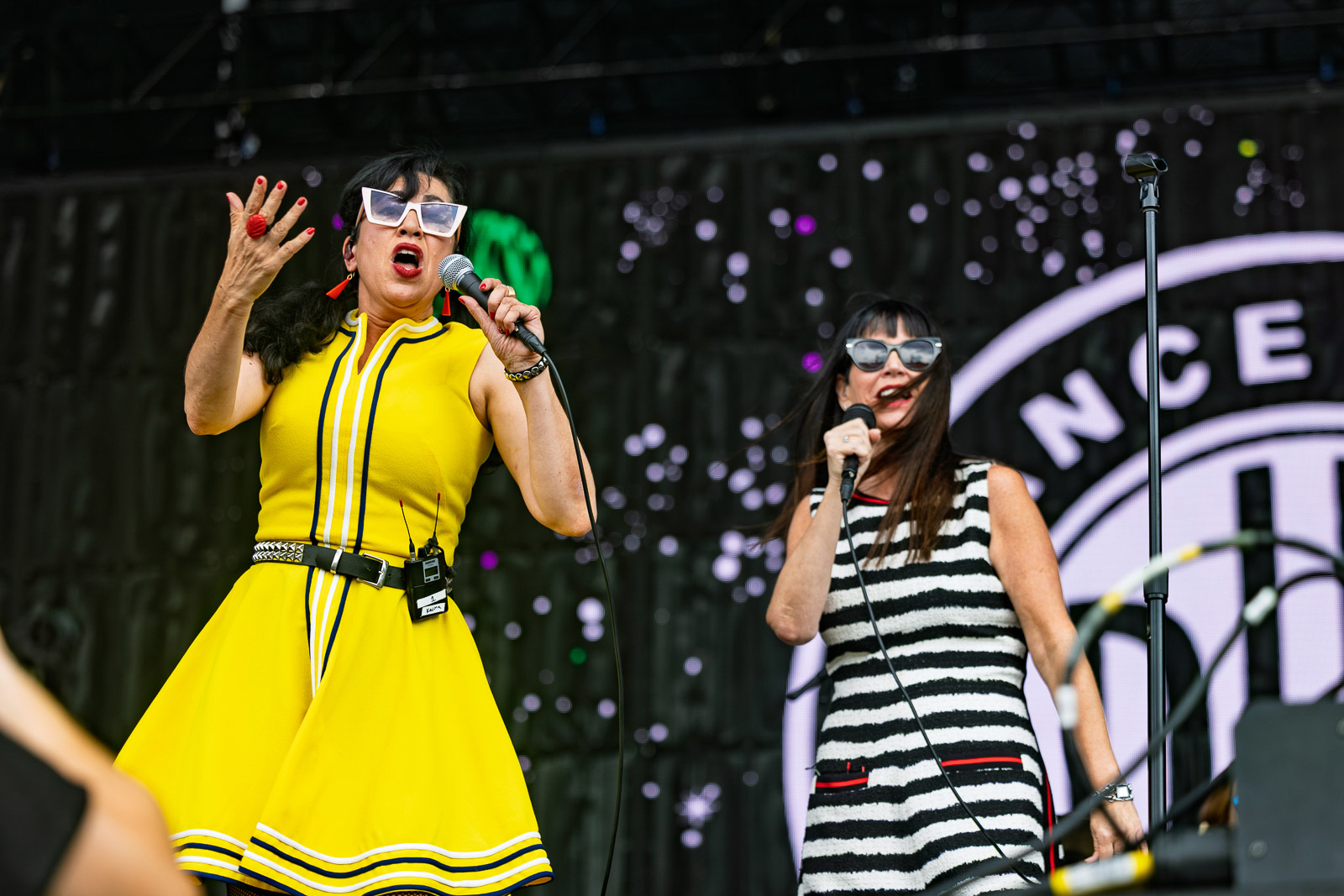
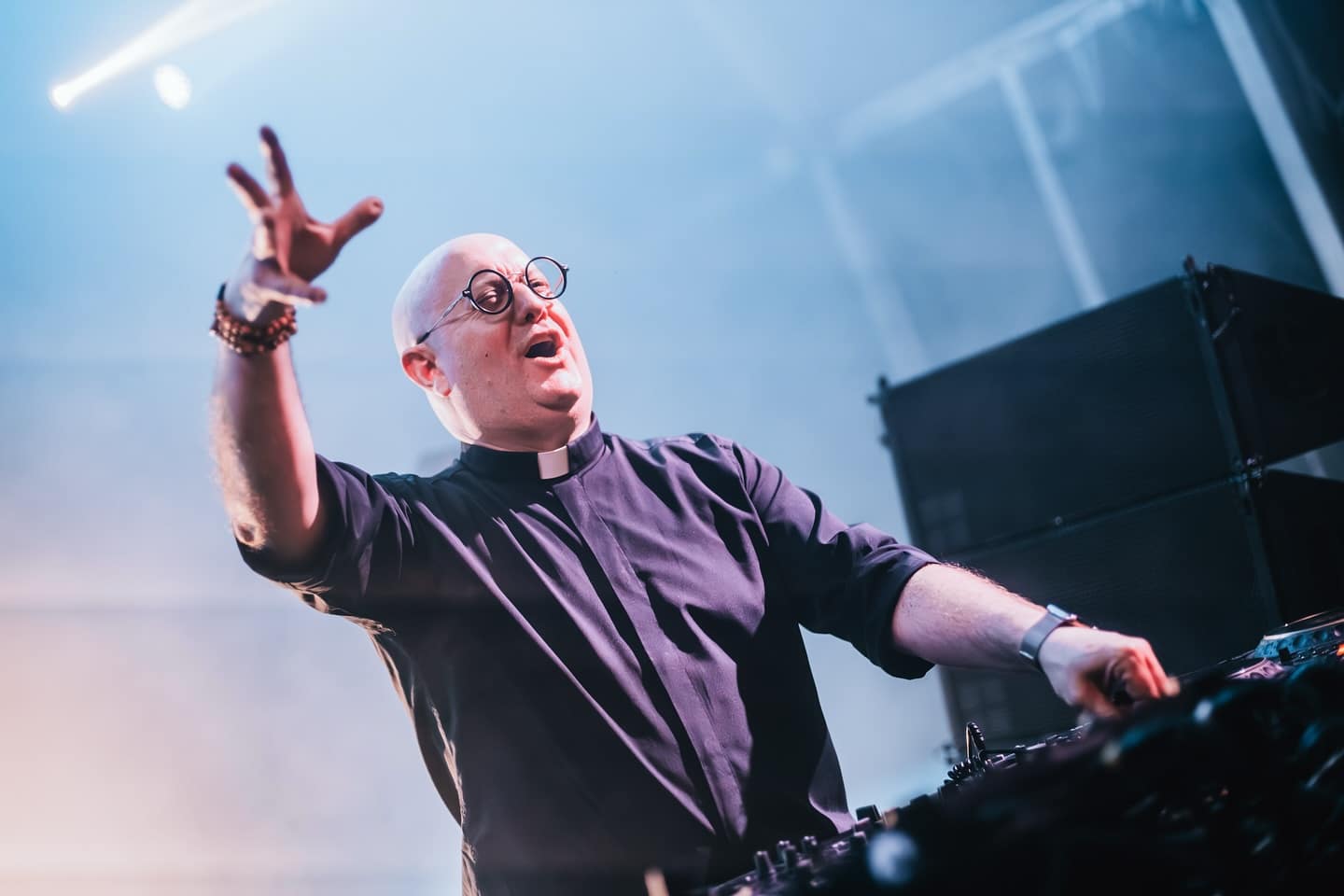
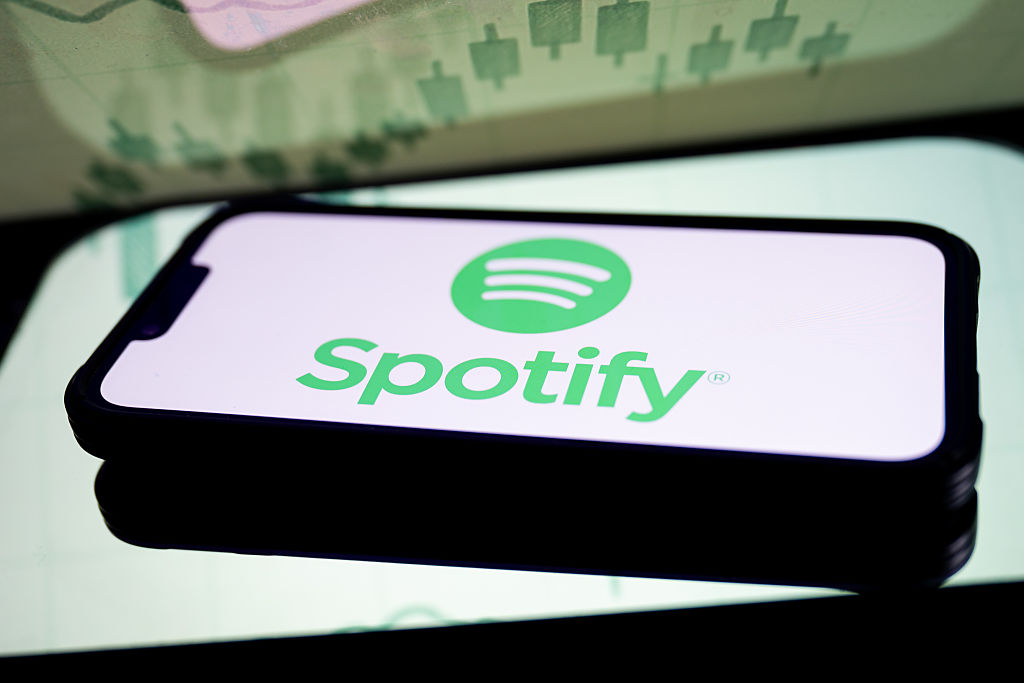


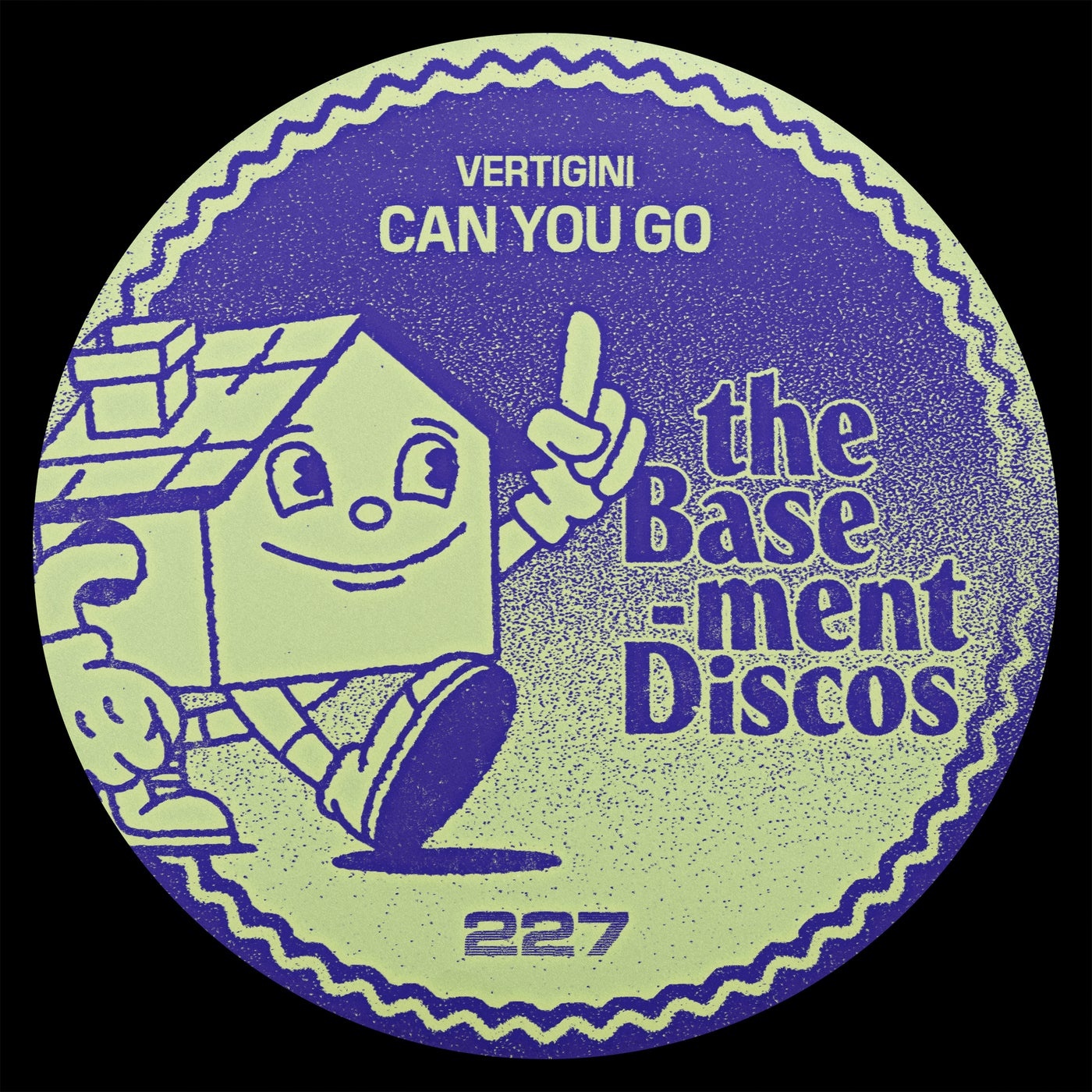


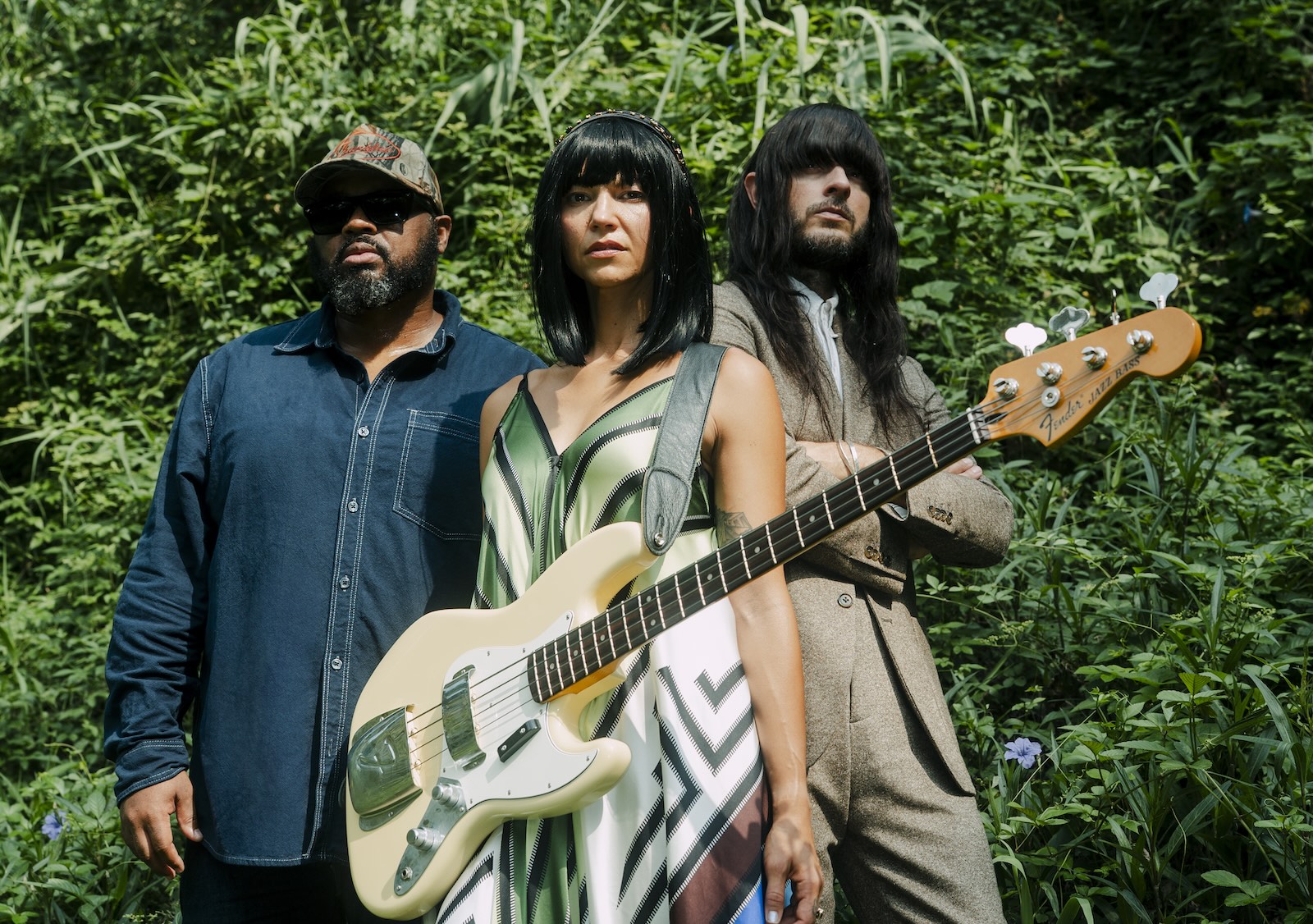


 English (US) ·
English (US) ·